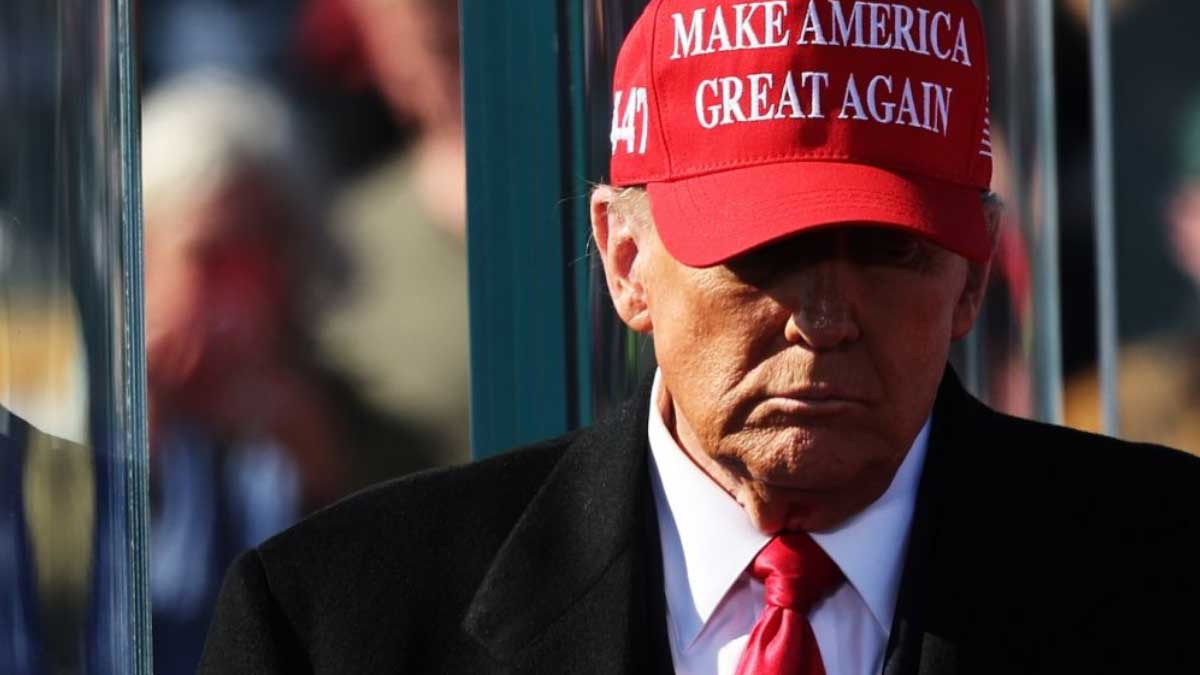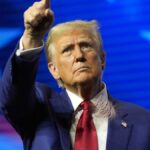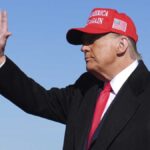- Home
- Billionaires
- Investing Newsletters
- 193CC 1000
- Article Layout 2
- Article Layout 3
- Article Layout 4
- Article Layout 5
- Article Layout 6
- Article Layout 7
- Article Layout 8
- Article Layout 9
- Article Layout 10
- Article Layout 11
- Article Layout 12
- Article Layout 13
- Article Layout 14
- Article Sidebar
- Post Format
- pages
- Archive Layouts
- Post Gallery
- Post Video Background
- Post Review
- Sponsored Post
- Leadership
- Business
- Money
- Small Business
- Innovation
- Shop
Recent Posts
Trump Draws Fire for Violent Remarks at Rally

At a recent rally in Lititz, Pennsylvania, former President Donald Trump stirred controversy with comments many see as dangerously provocative. Addressing the crowd on Sunday, Trump mused about a hypothetical scenario in which someone would need to “shoot through the fake news” to reach him, referring to the press section at his rally. His remark came as he discussed the security measures now in place to protect him, including a glass barrier after a gunman allegedly shot at him at a past event in July. “To get me, somebody would have to shoot through the fake news, and I don’t mind that so much,” Trump said, drawing laughter from the audience. Critics argue that such statements encourage hostility toward the media and pose risks to journalists who cover his events.
Trump’s remarks on Sunday followed another inflammatory comment he made just days earlier about former Wyoming Representative Liz Cheney, a Republican critic of Trump. Speaking alongside ex-Fox News host Tucker Carlson, Trump referred to Cheney as a “radical war hawk” and suggested she should experience having “guns trained on her face.” Imagining Cheney under hypothetical military fire, he said, “Let’s put her with a rifle standing there with nine barrels shooting at her.” This comment was widely condemned, with Cheney and others criticizing Trump’s language as violent and undemocratic.
The former president’s comments about Cheney align with his long-standing hostility toward critics within his own party, especially those who challenged his stance on foreign policy and his claims of election fraud. Cheney, known for her conservative views on defense and her outspoken criticism of Trump’s leadership, particularly after the January 6 Capitol attack, has become a frequent target of Trump’s ire. Since leaving Congress, Cheney has continued to warn against what she describes as the dangers posed by Trump’s rhetoric and influence on the Republican Party. In response to Trump’s recent statements, Cheney posted on social media, accusing him of adopting the tactics of authoritarian leaders by using threats to silence opposition: “This is how dictators destroy free nations. They threaten those who speak against them with death.”
In a subsequent interview on MSNBC, senior advisor to Vice President Kamala Harris’s campaign, Ian Sams, condemned Trump’s language, calling it “dangerous, violent rhetoric.” Sams argued that such statements from a former president should be taken seriously, emphasizing that they contribute to a culture of political aggression that could harm both individual safety and democracy. Meanwhile, the Arizona Attorney General’s office has reportedly begun investigating whether Trump’s comments about Cheney crossed legal lines within the state, underscoring the growing concerns about his rhetoric.
Beyond his comments about Cheney, Trump’s rally in Pennsylvania was filled with his familiar attacks on various figures and groups. He again targeted Democrats, labeling them as “demonic,” and voiced disapproval over the state of affairs since his departure from the White House, particularly in relation to border security. Trump hinted at his lingering resentment over the 2020 election, telling the crowd he “shouldn’t have left” the White House, a statement echoing his unfounded claims of a stolen election. He also took aim at the latest polling data, which shows him trailing Vice President Harris in a hypothetical matchup, calling the results “incorrect” and accusing the media and polling agencies of misrepresenting his popularity.
Throughout his speech, Trump revisited baseless claims of widespread voter fraud and election interference, asserting that these issues would resurface in the upcoming election. He specifically alleged that voter machines could be hacked to influence outcomes, a claim repeatedly debunked by election officials and cybersecurity experts. His persistence in questioning the integrity of the electoral system has raised concerns among election security advocates, who worry that such rhetoric could undermine public trust in democratic processes.
Trump’s comments about Cheney, in particular, have sparked a renewed conversation about the internal divisions within the Republican Party. Cheney’s criticisms of Trump have placed her at odds with many in the GOP, especially after she openly supported Trump’s impeachment following the Capitol riot. Cheney, along with her father, former Vice President Dick Cheney, has since aligned herself with Republicans who oppose Trump’s influence, including prominent figures such as former California Governor Arnold Schwarzenegger, former Arizona Senator Jeff Flake, and Jimmy McCain, the son of late Arizona Senator John McCain. This coalition of “Never Trump” Republicans has publicly backed Vice President Harris in her potential run, citing a need to restore decency and stability to the White House.
Trump’s remarks have ignited debates over the potential repercussions of inflammatory political language, with critics arguing that such rhetoric could incite real-world violence. Political scientists and commentators have long warned that language which normalizes aggression or dehumanizes opponents can lead to an atmosphere of hostility, affecting both public safety and democratic stability. The Committee to Protect Journalists (CPJ) has also voiced concerns about Trump’s rhetoric toward the press, suggesting that his repeated attacks on the media as “fake news” foster an environment in which journalists face increased risks.
Trump’s controversial comments come as he continues to rally support ahead of the next election cycle. His speeches remain marked by combative rhetoric, and while this approach energizes his base, it has also drawn rebukes from political leaders across the spectrum. Some members of his own party have distanced themselves from such language, while Democrats and other political opponents warn that his statements are reflective of authoritarian tactics meant to intimidate and undermine democratic discourse.
In light of Trump’s remarks, observers note the possibility of intensified scrutiny from both legal and political circles. Trump’s use of violent metaphors and his continued targeting of individual critics suggest a political strategy that prioritizes loyalty and divisiveness, raising questions about the impact such an approach could have on the tone and tenor of American political life.
As the country approaches a contentious election season, Trump’s rhetoric is likely to remain a point of contention. For his supporters, his unapologetic style is seen as a hallmark of his authenticity and willingness to challenge the status quo. For his critics, however, the risk posed by normalizing violence-infused language cannot be overlooked. The enduring polarization surrounding Trump highlights the ongoing struggle within American society to balance freedom of expression with the responsibilities of leadership in a democratic nation.
Recent Posts
Categories
- 193 Countries Consortium Partner1
- 193cc Digital Assets2
- 5G1
- Aerospace & Defense48
- AI37
- Arts3
- Banking & Insurance11
- Big Data3
- Billionaires1,467
- Boats & Planes1
- Business332
- Careers13
- Cars & Bikes79
- CEO Network1
- CFO Network17
- CHRO Network1
- CIO Network1
- Cloud10
- CMO Network18
- Commercial Real Estate7
- Consultant1
- Consumer Tech194
- CxO1
- Cybersecurity73
- Dining1
- Diversity, Equity & Inclusion4
- Education7
- Energy8
- Enterprise Tech29
- Events11
- Fintech1
- Food & Drink2
- Franchises1
- Freelance1
- Future Of Work2
- Games149
- GIG1
- Healthcare79
- Hollywood & Entertainment203
- Houses1
- India’s 1000 Richest1
- Innovation46
- Investing2
- Investing Newsletters4
- Leadership65
- Lifestyle11
- Manufacturing1
- Markets20
- Media327
- Mobile phone1
- Money13
- Personal Finance2
- Policy569
- Real Estate1
- Research6
- Retail1
- Retirement1
- Small Business1
- SportsMoney42
- Style & Beauty1
- Success Income1
- Taxes2
- Travel10
- Uncategorized14
- Vices1
- Watches & Jewelry2
- world's billionaires1,436
- Worlds Richest Self-Made Women2
Related Articles
South Korea Plane Crash: A Tragic Loss and Global Mourning
The tragic plane crash at South Korea’s Muan International Airport on Sunday...
By 193cc Agency CouncilDecember 30, 2024H-1B Visa Debate Splits Trump Allies and Silicon Valley
The debate over H-1B visas has once again become a contentious issue,...
By 193cc Agency CouncilDecember 28, 2024Trump Moves $4B Stake in Truth Social Parent, Stock Drops 6%
Donald Trump recently transferred his 57% stake in Trump Media & Technology...
By 193cc Agency CouncilDecember 20, 2024House Rejects Trump-Backed Funding Bill, Shutdown Looms
The U.S. House of Representatives rejected a new government funding bill on...
By 193cc Agency CouncilDecember 20, 2024















Leave a comment